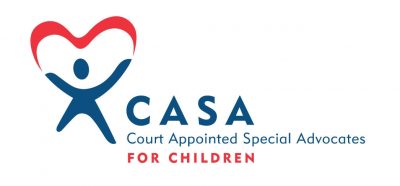
CASA of Pinal County
FLORENCE, AZ – At a time when our country is celebrating its independence, hundreds of kids in Arizona’s foster care system are trying to finds theirs without the guidance and direction that traditionally comes from parents.
Teens who enter the foster care system are at a disadvantage when it comes to independence. They are more likely than younger children to be placed in a group home or shelter situation with up to a dozen other youth and limited opportunities for personal growth. This hits hard at a time when most other kids their age are getting ready to drive, graduate high school and date.
There are thousands of teens in foster care in Arizona and every six months more than 500 of them reach the age of 18 and head out into the world on their own. The community can help. Studies have shown one caring, consistent adult can have a life-changing impact on a child in foster care. That’s why the Court Appointed Special Advocate (CASA) Program is so important.
CASA advocates ensure not only that a child in foster care has a consistent adult presence but that they have the services and support they need to thrive. CASA advocates are appointed to one case and visit the children involved with that case regularly. They gather vital information which is shared in a court report with the judge who will ultimately make decisions regarding the child’s living situation.
Children with a CASA volunteer assigned to them are more likely to receive services and resources; twice as likely to find a safe, permanent home; and half as likely to re-enter the foster care system. Unfortunately very few children get the support of a CASA volunteer.
There are approximately 85 CASA volunteers serving children in Pinal County. More people are encouraged to get involved. For more information contact CASA of Pinal County at 520-866-7076 or visit www.CASAofArizona.org.
CASA Volunteers:
· Volunteers must be at least 21 years old.
· Volunteers go through a rigorous screening process including interviews, reference check, a fingerprint check, and polygraph exam.
· Volunteers are asked to make a commitment to one case until its conclusion, typically involving 15-20 hours per month.
· Volunteers must complete 30 hours of pre-service training.
· CASA volunteers are advocates, not mentors. Their objective is to help the court system determine the best outcome for the child.
· CASA volunteers try to build a 360-degree view of the child and his or her surroundings. To do this, they meet with teachers, counselors, physicians, and guardians.
· CASA volunteers work to ensure that children are in safe, permanent homes where they can thrive.
